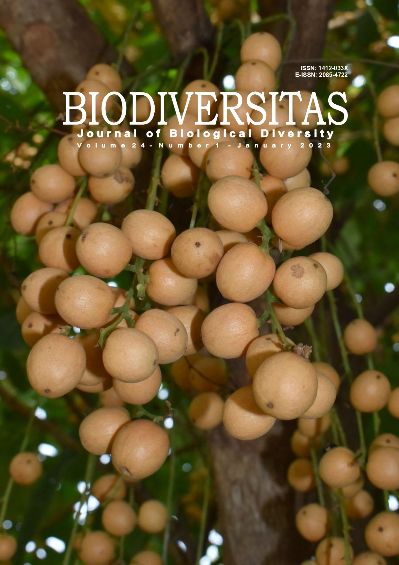Genetic diversity and gain quantitative characters of maize from index-based selection at two dry lands in Lombok, Indonesia
##plugins.themes.bootstrap3.article.main##
Abstract
Abstract. Sudika IW, Soemeinaboedhy IN, Sutresna IW. 2023. Genetic diversity and gain quantitative characters of maize from index-based selection at two dry lands in Lombok, Indonesia. Biodiversitas 24: 11-19. Genetic diversity and gain quantitative characters of maize from index-based selection at dry land is poorly reported. This research aims to study the genetic diversity and gain of several traits quantitative of the index-based selection at two dry lands in Amor-Amor and Pererenan, Lombok, Indonesia. A randomized block design with three replications was applied to design the experiment. The materials used is maize from nine populations, namely eight populations from the selection of index-based and one from the initial population. The data were analyzed for variance at the 5% significance level. The results showed that the genetic diversity of yields was categorized as moderate, and the weight of dry cobs harvested per plant was narrow in both locations. The genetic diversity of fresh stover weight per plant in Pererenan was wider than in Amor-Amor, but still in the same category, which was medium. These three traits had a significant genetic gain in the moderate category for both locations, except for the weight of fresh stover per plant, which was high in Pererenan. The dry seed weight per plant had a moderate genetic diversity and gain with a significant positive phenotypic correlation with yield. Yield and fresh stover per plant can still be increased through index-based selection by using dry seed weight per plant and fresh stover per plant in both locations.

